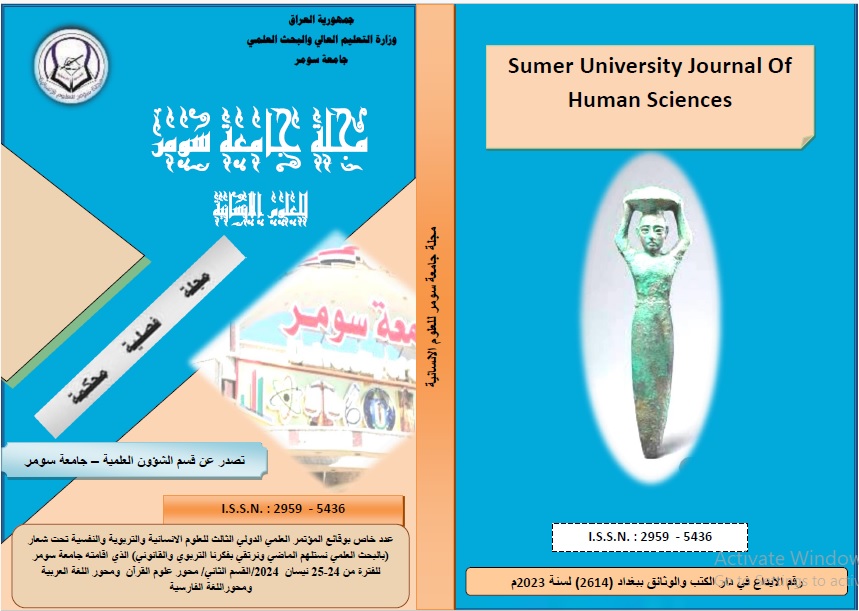Linguistic Critical Reading in the Cognitive Discourse of University Theses: The Thesis "Solo Voices in Iraqi University Theses from 1989 to 2011" as a Model
Abstract
University theses and dissertations have taken a new direction in linguistic research. Previously, they focused on a specific topic or a specific aspect. Now, they choose a collection of theses and dissertations that have been written on that specific topic or aspect within a time span of at least two decades. They analyze, critique, interpret, and evaluate this extensive cognitive output, creating a new body of knowledge born from these preceding theses and dissertations.
Upon reviewing the discourse of this new output, we found that it merits attention. It serves as a summary of several theses and dissertations discussed and approved in reputable universities, as well as condensing a significant period of academic research. It became evident that there was some deficiency in the creation of this intellectual product at three levels:
- Research, Inquiry, Evaluation, and Assessment: There was a shortfall in the thoroughness of research, investigation, and evaluation.
- Monitoring and Scientific Supervision: There was a lack of adequate scientific supervision and follow-up.
- Discussion of the Thesis: The thesis, as a study that blended approved and authorized university theses, was not adequately discussed.
Based on the above, the recommendations were that universities should adopt the method of distributing the chapters of the thesis or dissertation to the discussing committee members after the thesis is written. Each professor in the committee would focus their efforts on studying their assigned section, investigating the quoted texts, interpreting, analyzing, evaluating, and correcting them.
As for the proposals, there was a single recommendation: universities should suggest that graduate students register their topics on theses and dissertations written on linguistic output spanning a decade or more. This approach treats these studies as significant efforts over an extended period, examining the discourse of these studies in the manner we have done in our research.


